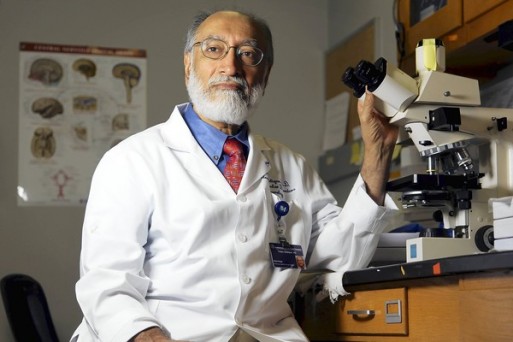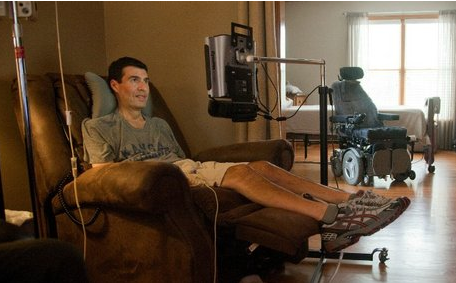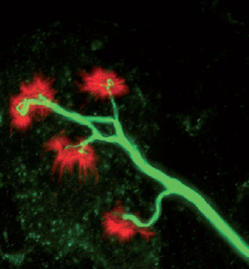
Northwestern University‘s Dr. Teepu Siddique.
(credit: ilmfeed.com)
There’s been a lot of media buzz surrounding the recent Ice Bucket Challenge. From the average Joe to Donatella Versace, everyone has been uploading their videos online to raise awareness for ALS (Amyotrophic lateral sclerosis), or Lou Gehrig’s disease. But what about those working behind the scenes? Scientists like Dr. Teepu Siddique at Northwestern University have donated their life’s work to ALS research – and today, he is excited to say that they may have found the root cause of each type of ALS.
Motor nerves plug back into muscles early in the disease course- keeping people with ALS moving.
(credit: ALS Therapy Development Institute)“ALS has a very tragic outcome…It’s like being jailed in your own body. It’s an example of the overall human condition of futility and helplessness. That is the philosophic and humanistic underpinning of my interest in this disease.”
— Dr. Teepu Siddique
There are three kinds of ALS: sporadic, hereditary and that which targets the human brain. Dr. Siddique and other researchers at Northwestern’s Davee Department of Neurology and Clinical Neurosciences believe the underlying problem with each has to do with something called “the breakdown of protein recycling.”
Essentially, says their study, “[the] basis of ALS is a malfunctioning protein recycling system in the neurons of the brain and spinal cord. Efficient recycling of the protein building blocks in the neurons are critical for optimal functioning of the neurons. They become severely damaged when they can’t repair or maintain themselves.” This, say researchers, is a problem prevalent in all cases of Lou Gehrig’s.

Hiram Salvini has a serious case of ALS, or Lou Gehrig’s disease. He can’t move or talk and uses his eyes to type words into a computer, which then speaks for him.
(credit: Richard Gwin)
What does this mean for the future of ALS research? Well, now Dr. Siddique says scientists can start focusing their energy on drugs that could regulate these protein “pathways,” altering them to the patient’s benefit. It’s an exciting discovery for a disease that has changed the lives of around half a million people worldwide.
You may enjoy:
- Reading Health magazine’s article on the above topic here
- Visiting the ALS Association website here.
- Reading our article, “Before It’s “Too Late”: Seniors Share Fears Before Death The fears and regrets of the dying expressed through an honest photo series by Steve Rosenfield”here

 ALS: Uncovering the Common Cause
ALS: Uncovering the Common Cause



 “As Tears Go By” by Marianne Faithfull
“As Tears Go By” by Marianne Faithfull

 Funeral Favors Offer Visitors a Tangible Memento
Funeral Favors Offer Visitors a Tangible Memento















